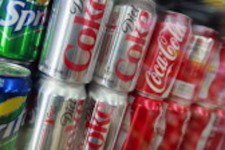
Dr. Susan E. Swithers from the Purdue Department of Psychological Sciences and Ingestive Behavior Research Center authored a commentary entitled Artificial sweeteners produce the counterintuitive effect of inducing metabolic derangements. Her opinion piece was most often mistaken for a scientific study by sensation-seeking media. It appeared in the journal, Trends in Endocrinology and Metabolism.
Much of the media take on this position paper bought into the author s theory, that somehow artificially-sweetened beverages (ASBs) are equivalent to sugar-sweetened beverages for provoking obesity and the various adverse biomarkers of metabolic syndrome, especially diabetes and cardiovascular disease. In the piece, she cites several studies, some of which assert an association between ASBs and adverse health effects, some of which do not. She also cites rodent studies in support of her hypothesis, most of which she authored.
ACSH s Dr. Gilbert Ross had this assessment of the article and its stated mission: What s wrong with this commentary and its hypothesis? What s right with it, is a better question. Dr. Swithers, despite her PhD, apparently never passed (or even took) Epidemiology and Statistics 101, as she flouts most of the key dictates of cause-and-effect and ignores the rest. At least, we should give her credit for stating right at the outset what she is doing: One purpose of this opinion paper is to summarize and evaluate recent research that is consistent with the rather counterintuitive claim that consuming high-intensity sweeteners may promote excess energy intake... [itals added]. I would say that rather than one purpose, the more appropriate term would have been, the sole purpose, since no effort was made to present a balanced, weight-of-evidence assessment as per the scientific method as she says right off the bat!
The so-called science journalists who used headlines such as this one, on no less than CBS News site: Artificial sweeteners could lead to obesity, diabetes, clearly failed the same basic science classes as Swithers did. I am forced to quote one of the comments made on the CBS News story: Deducing that the consumption of a Zero calorie/Zero Fat beverage makes one fat is akin to a conviction that switching on my windshield wipers makes it rain. This commentator seems to have actually studied the science here, as he has clearly illustrated the fallacy, Post hoc ergo propter hoc: if something occurs after a prior event, the first event must have caused the later one. The author here imagines that merely because people who favor ASBs have a tendency towards obesity and other metabolic derangements, thus the ASBs must have caused the effects on health. This is obvious pedantry of the worst, agenda-driven sort.
One final thought: in what universe might zero-calorie sweeteners cause obesity, as compared to ingesting caloric sweeteners? Her theory, that sweeteners of any type re-adjust if you will the brain s perception of sweet, thereby leading to more craving for other sweet items, is interesting in a way. But for her to assert that this is somehow supported by any valid evidence, or even proven as the news stories imply, is laughable although apparently the science journalism crowd was too busy licking its lips over another opportunity for sensationalism to laugh.


